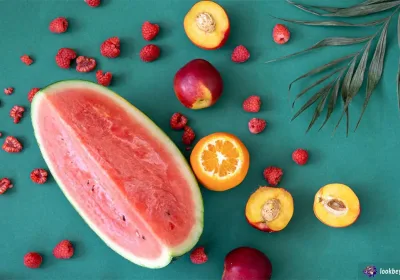How Healthy Hair Is Linked To Healthy Eating Habits

A luscious mane is not just a result of good hair care routines but also a reflection of overall well-being. The saying “you are what you eat” holds true when it comes to hair health. A balanced and nutritious diet plays a crucial role in maintaining strong, shiny, and healthy hair. This article explores how healthy eating promotes healthy hair and what foods can boost hair growth and strength.
How Healthy Eating Habits Promotes Healthy Hair
Healthy hair is directly linked to healthy eating habits because the nutrients we consume are essential building blocks for strong, resilient hair follicles and shafts. A balanced diet rich in protein, vitamins, and minerals supports hair growth, prevents hair loss, and promotes overall hair health.

The Science Behind Hair Health and Nutrition
Hair is primarily composed of keratin, a protein that requires a steady supply of nutrients to grow and remain strong. Without essential vitamins and minerals, hair can become brittle, weak, or even fall out. The following nutrients are particularly important for understanding how healthy eating promotes healthy hair:
Protein: The Building Block of Hair
Since hair is made up of protein, consuming adequate amounts of protein-rich foods such as eggs, fish, lean meats, beans, and dairy products is essential for healthy hair growth and strength.
Iron: Essential for Hair Growth
Iron deficiency is one of the leading causes of hair loss. Eating healthy Foods like spinach, lentils, red meat, and fortified cereals help promote healthy hair by supplying the necessary iron to support hair follicles and encourage growth.
Iron: Omega-3 Fatty Acids: Nourishment for the Scalp
Found in fatty fish, walnuts, and flaxseeds, omega-3 fatty acids keep the scalp hydrated and reduce inflammation, preventing dryness and hair breakage.
Biotin and Other B-Vitamins: Strength and Shine
B vitamins, particularly biotin, are vital for keratin production. Foods like nuts, seeds, eggs, and whole grains can help strengthen the hair shaft and promote hair thickness.
Vitamins A and C: Boosting Scalp Health
Vitamin A helps produce sebum, the natural oil that keeps the scalp moisturized, while vitamin C aids in collagen production, strengthening the hair structure. Carrots, sweet potatoes, oranges, and strawberries are excellent sources.
Zinc and Selenium: Preventing Hair Loss
These minerals help maintain hair follicle health and prevent excessive shedding. Nuts, shellfish, and whole grains are good dietary sources of zinc and selenium.
The Impact of an Unhealthy Diet on Hair
A diet lacking in essential nutrients can lead to weak, lifeless hair, increased hair shedding, and even scalp conditions like dandruff. Processed foods high in sugars and unhealthy fats can also contribute to poor scalp health, affecting hair growth negatively.
Conclusion
Healthy eating promotes healthy hair by supplying the body with essential nutrients that support hair growth, strength, and overall scalp health. A diet rich in protein, vitamins, and minerals is key to maintaining vibrant and resilient hair. By making mindful dietary choices, you can achieve not only a healthier body but also a healthier head of hair.
If you’re not sure how to get started living a healthier lifestyle, Marcey Grant is an experienced Beauty & Wellness Coach. As such, she can get you set on your wellness goals as well as provide tools for your overall well-being. Book your lifestyle coaching sessions today!
To Good Health,
Marcey, Certified Health Coach & Trichologist
DISCLAIMER: The content in this blog is for informational purposes only. And not intended to diagnose, treat, cure, or prevent any medical condition or replace your healthcare professional’s advice and guidance. If you suspect a medical condition, please seek medical attention immediately.
You may also enjoy reading: Why The 16/8 Intermittent Fasting Method For Belly Fat?





